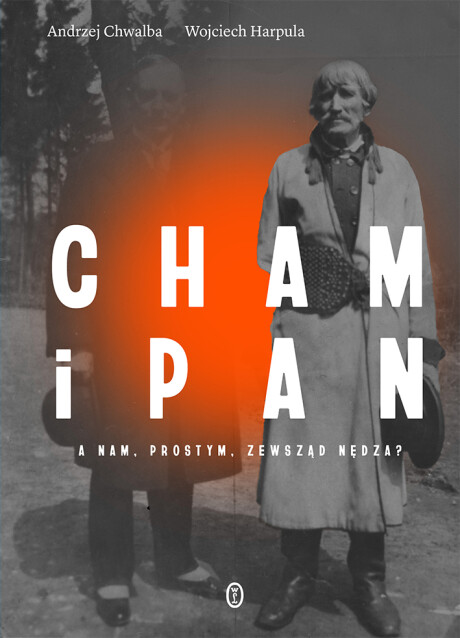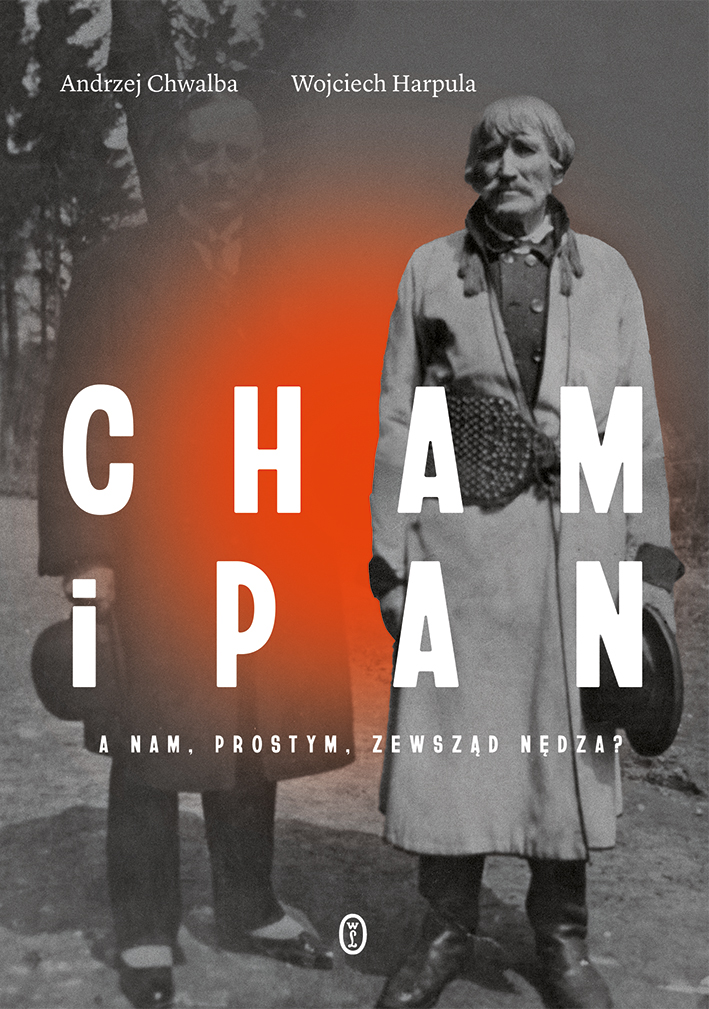
Keynote
A folk history of Poland – a colourful and
comprehensive description of a world in
which the majority of Polish society lived
for centuries.
Selling Points
Athorough and brilliant analysis of
the centuries-old folk history of Poland.
A vivid and accessible reconstruction of
the reality in which peasants lived in this
part of Europe.
An extremely important voice in
the discussion which is ongoing today (not
only in Poland) about a social and political
revision of official historiography.
A book written from various
perspectives – without previously imposed
ideological findings, for which reason
readers can make their own minds up on
many matters.
An attractive form of
lexicon – a collection of the most
important concepts organizing that reality
and expression.
A well-known and esteemed duo of
historians.
Description
What was the life of a Polish peasant
like in centuries gone by? What shaped
reality at that time? A duo of well-known
Polish historians have prepared a special
lexicon of the most important concepts
without which it is hard to understand
Poland’s history. Illiteracy, rebellion, boor,
Drzymała, Głowacki, Hameryka, tavern,
shortages of food before spring, Szela,
fights of peasants – these are selected
titles of the book’s chapters and each
of them represents a multi-aspected
and compelling story about the history
of the land and the everyday existence
of people who constituted three quarters
of Poland’s population. What changes did
the Polish peasantry undergo through
the ages? What were the everyday
challenges for the “peasant” regarding his
“lord”? What did peasants eat and drink?
Who flogged them and whom did they
flog? What did they believe in, whom
did they respect, whom did they hold
in contempt? What did they put their
hopes into?
The history of Poland has up until now
been written by the people who governed
the country, and later, after losing it, they
tried to regain it. It was not, however,
the history of peasants. During the Polish
People’s Republic, but also more recently,
academic studies concerning peasants
were usually tainted by ideology. Andrzej
Chwalba and Wojciech Harpula present
their history objectively. They don’t
come down on one or other side, avoid
glib simplifications, and rather than
easy answers offer a solid account, based
on competently exploited source materials
and issues which force one to think and
undertake one’s own searches.
Target Market
Readers of history books.
People interested in Polish history and
politics.
Pages: 432
ISBN: 978-83-08-07673-6
Request manuscript
Other covers

The Peasant and His Lord. And for Us, Simple Folk, Only Misery?
Wojciech HarpulaAndrzej Chwalba
Keynote
A folk history of Poland – a colourful and
comprehensive description of a world in
which the majority of Polish society lived
for centuries.
Selling Points
Athorough and brilliant analysis of
the centuries-old folk history of Poland.
A vivid and accessible reconstruction of
the reality in which peasants lived in this
part of Europe.
An extremely important voice in
the discussion which is ongoing today (not
only in Poland) about a social and political
revision of official historiography.
A book written from various
perspectives – without previously imposed
ideological findings, for which reason
readers can make their own minds up on
many matters.
An attractive form of
lexicon – a collection of the most
important concepts organizing that reality
and expression.
A well-known and esteemed duo of
historians.
Description
What was the life of a Polish peasant
like in centuries gone by? What shaped
reality at that time? A duo of well-known
Polish historians have prepared a special
lexicon of the most important concepts
without which it is hard to understand
Poland’s history. Illiteracy, rebellion, boor,
Drzymała, Głowacki, Hameryka, tavern,
shortages of food before spring, Szela,
fights of peasants – these are selected
titles of the book’s chapters and each
of them represents a multi-aspected
and compelling story about the history
of the land and the everyday existence
of people who constituted three quarters
of Poland’s population. What changes did
the Polish peasantry undergo through
the ages? What were the everyday
challenges for the “peasant” regarding his
“lord”? What did peasants eat and drink?
Who flogged them and whom did they
flog? What did they believe in, whom
did they respect, whom did they hold
in contempt? What did they put their
hopes into?
The history of Poland has up until now
been written by the people who governed
the country, and later, after losing it, they
tried to regain it. It was not, however,
the history of peasants. During the Polish
People’s Republic, but also more recently,
academic studies concerning peasants
were usually tainted by ideology. Andrzej
Chwalba and Wojciech Harpula present
their history objectively. They don’t
come down on one or other side, avoid
glib simplifications, and rather than
easy answers offer a solid account, based
on competently exploited source materials
and issues which force one to think and
undertake one’s own searches.
Target Market
Readers of history books.
People interested in Polish history and
politics.
Pages: 432
ISBN: 978-83-08-07673-6

Other covers



